Czechia, my homeland. The land of beer, Becherovka, Olomoucké tvarůžky, spa wafers, and other great culinary souvenirs. Although I usually travel light abroad with just a small backpack, in my recommendations of what to bring back from Czechia, I also mention heavier and liquid items.
What are my personal tips for the best Czech gastronomic souvenirs?
Gastronomic Souvenirs from Czech Republic
Czech Beer
Czech beer is one of the most significant symbols of Czech culture and gastronomy. The history of beer brewing in the Czech lands dates back to the Middle Ages, with the first written records from the 11th century. The greatest boom in brewing came in the 19th century, when many of today’s world-famous breweries were established (Pilsner Urquell, Budějovický Budvar). Czech beer is brewed from high-quality water, malted barley, and traditional Czech hops.
In the past two decades, Czech brewing has experienced a boom of small craft breweries that have expanded the offer with original and unconventional beers. Among the well-known and acclaimed microbreweries are, for example, Matuška, Zíchovec or Clock. Czech beer is a common part of social life and an inseparable element of Czech cuisine and traditions.
Beer is traditionally sold in glass bottles and cans in shops. However, you can also find beer in PET bottles.
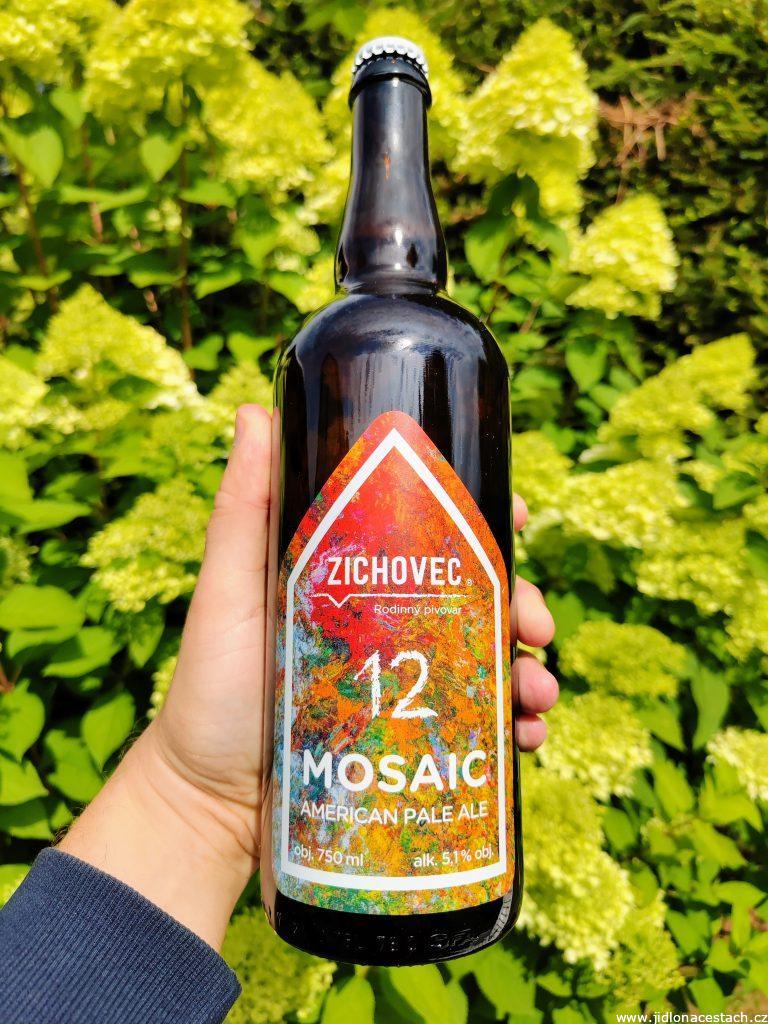
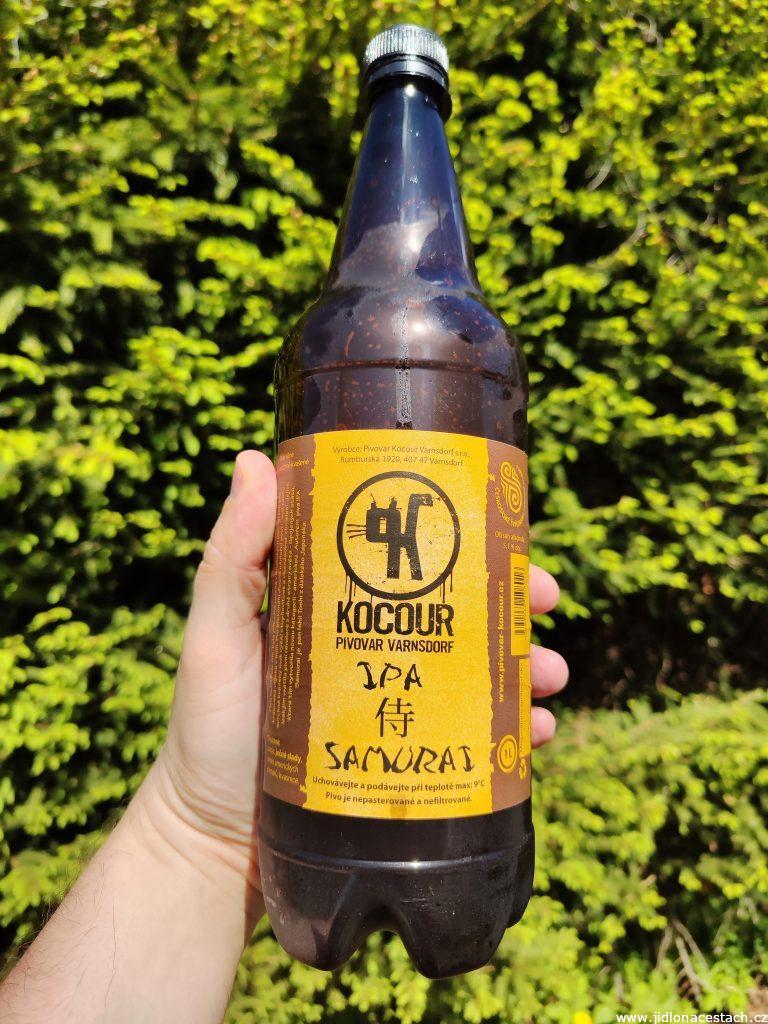
Price for Matuška Apollo Galaxy Pale Ale 13° (0.75 l, glass): 160 CZK (6.40 EUR)
Price for Zíchovec Juicy Lucy 15° (0.5 l, can): 135 CZK (5.40 EUR)
Price for Pilsner Urquell 12° (0.5 l, glass): 32 CZK (1.28 EUR)
Moravian Wine
Wine regions in the Czech Republic are by area incomparably smaller than the famous wine regions in France, Italy, or Spain, yet wines are produced here that regularly win awards at prestigious international competitions. The Moravia wine region is divided into four subregions: Mikulovská, Velkopavlovická, Slovácká, and Znojemská, each with its own distinctive conditions and wine styles.
The national grape variety is Welschriesling (ryzlink vlašský). In addition to Welschriesling, a wide range of other white and red grape varieties are grown in Moravia, such as Grüner Veltliner (veltlínské zelené), Pinot Gris (rulandské šedé), Sauvignon, Gewürztraminer (tramín červený), Blaufränkisch (frankovka), or Portugieser (modrý portugal). A popular choice is the fruity and sweet pálava variety.
Among the best-known Moravian wineries, which regularly receive awards at both domestic and international competitions, are Sonberk Winery, Josef Valihrach Winery, Volařík Winery, Mikrosvín Mikulov Winery, and Spielberg Winery. These wineries invest in modern technologies and sustainable approaches to their vineyards and are considered leaders in quality and innovation in the Moravian wine market.
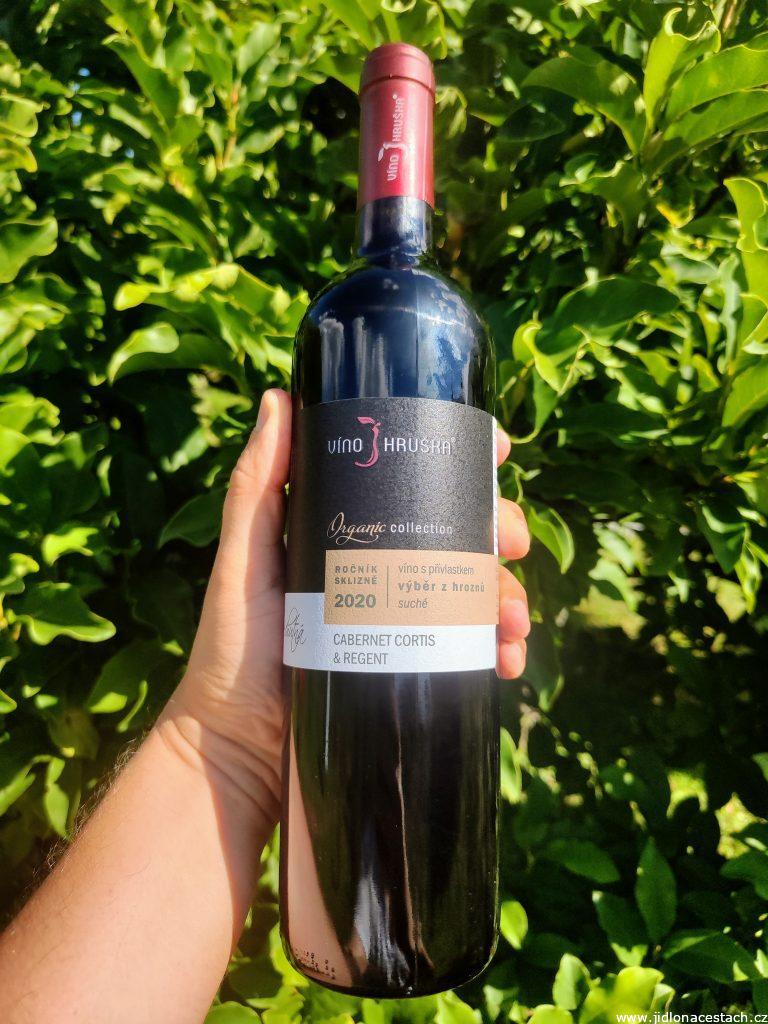
Price for a bottle of Moravian wine (0.75 l) purchased directly from the winery: from 200 CZK (8 EUR) and up
Becherovka Herbal Liqueur
Becherovka is a traditional Czech herbal liqueur originating from Karlovy Vary. The history of Becherovka dates back to 1807, when it was first produced by pharmacist Josef Vitus Becher. The drink quickly became popular not only in Czechia but also abroad. The secret recipe for Becherovka is known only to a few people and is carefully guarded.
The liqueur is made from high-quality spirit, water from Karlovy Vary’s springs, natural sugar, and a blend of several dozen herbs and spices. The exact composition of the herbal mixture is not publicly known, but commonly mentioned ingredients include cinnamon, cloves, and anise.
Becherovka is served as an aperitif or digestif, usually chilled. In Czechia, it is a popular base for the mixed drink called “Beton” (Becherovka with tonic). In the past, people considered Becherovka to be a stomach liqueur with beneficial effects on digestion. The spirit is regarded as part of Czech national cultural heritage.
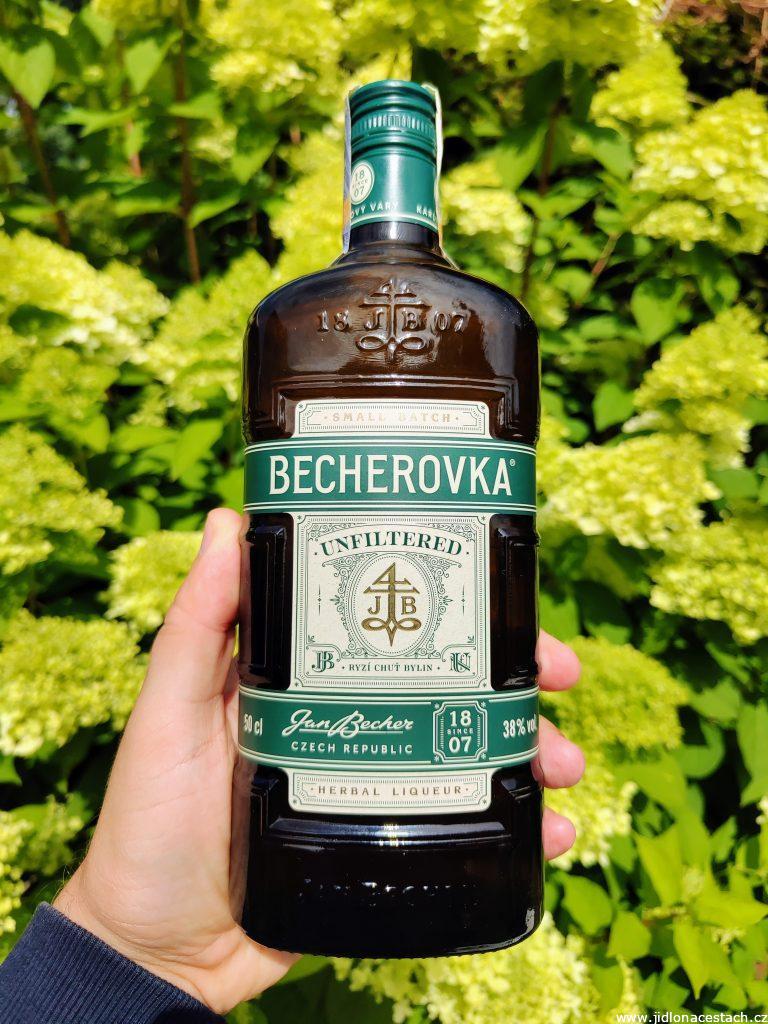
Price for a bottle of Becherovka (0.7 l): 290 CZK (11.60 EUR)
Moravian Slivovitz
Moravian slivovitz is a traditional fruit brandy from the Moravia region (the eastern part of the Czech Republic). The main ingredient in slivovitz production is ripe plums, which undergo fermentation and subsequent distillation. Plums have been grown in Moravia for centuries, and their selection, ripeness, and quality significantly affect the taste of the final spirit. Typical Moravian slivovitz has a clean, distinctly fruity flavor and the characteristic aroma of plums.
Slivovitz is traditionally served at special occasions such as weddings, funerals, or when welcoming guests. Slivovitz is also often served for colds or digestive discomfort. When drinking slivovitz, small glasses called “štamprle” are used to enhance the tasting experience.
Moravian slivovitz is also very popular because it can be legally produced at home. Throughout the country, there are many public fruit distilleries where people can have their own slivovitz distilled from their own fruit. This method of production is widespread and is a long-standing tradition. Homemade slivovitz is often considered a valuable family product. Even our family distills its own slivovitz.
You won’t find homemade slivovitz in stores, but you can’t go wrong purchasing slivovitz from the distillery Žufánek, Veselý grunt, or many others. Slivovitz from the distillery Rudolf Jelínek is also very easily available.
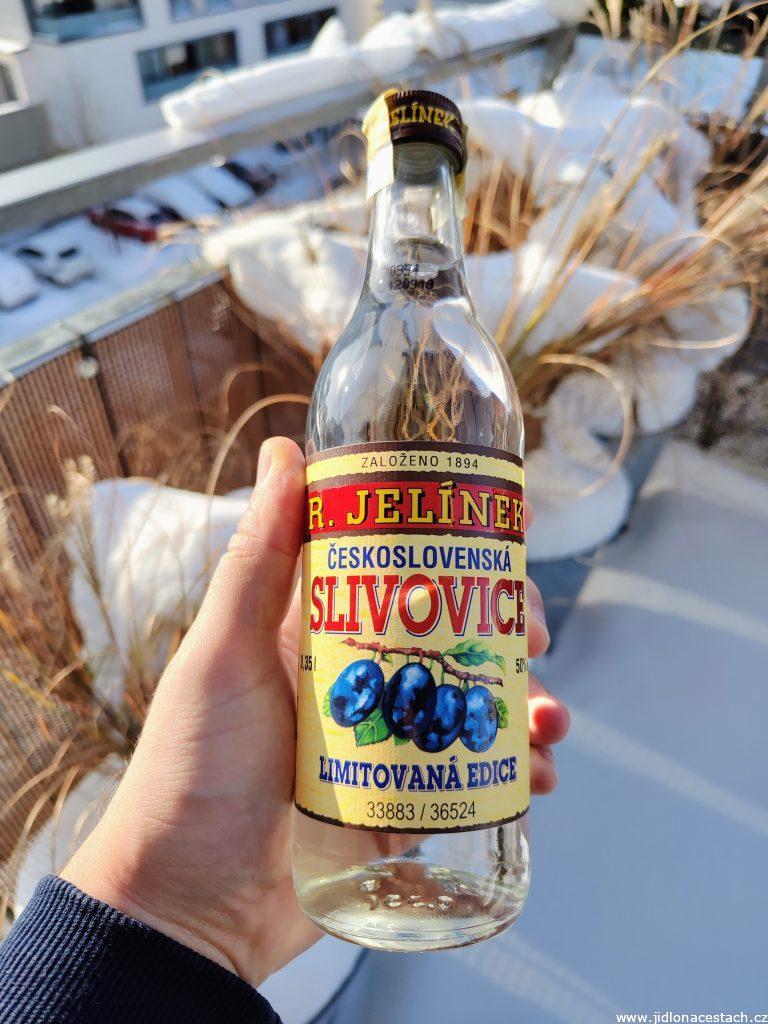
Price for a bottle of Žufánek slivovitz 50% (0.5 l): 790 CZK (31.60 EUR)
Price for a bottle of Veselý grunt slivovitz 48% (0.5 l): 530 CZK (21.20 EUR)
Price for a bottle of R. Jelínek slivovitz 45% (0.5 l): 420 CZK (16.80 EUR)
Spa Wafers
Spa wafers are a traditional sweet pastry that originated in Czech spa towns. The oldest records of wafer production come from Karlovy Vary, where they began to be baked in the 19th century. Later, production expanded to other important spa towns, such as Mariánské Lázně and Františkovy Lázně. Each spa town has its own type of spa wafer.
Typical spa wafers are made from wheat flour, sugar, milk, butter, and a mixture of spices. Traditional fillings include nuts, cinnamon, cocoa, or vanilla. The wafers are baked in special iron molds that create a characteristic embossed pattern on the surface. The result is thin, crispy, and fragrant layers.
Spa wafers in Czechia are closely associated with visits to spas and are a typical souvenir. When visiting Karlovy Vary, it is customary to taste spa wafers together with Becherovka. Wafers are often enjoyed during walks along the colonnade and are an integral part of the local atmosphere and social life of spa towns.
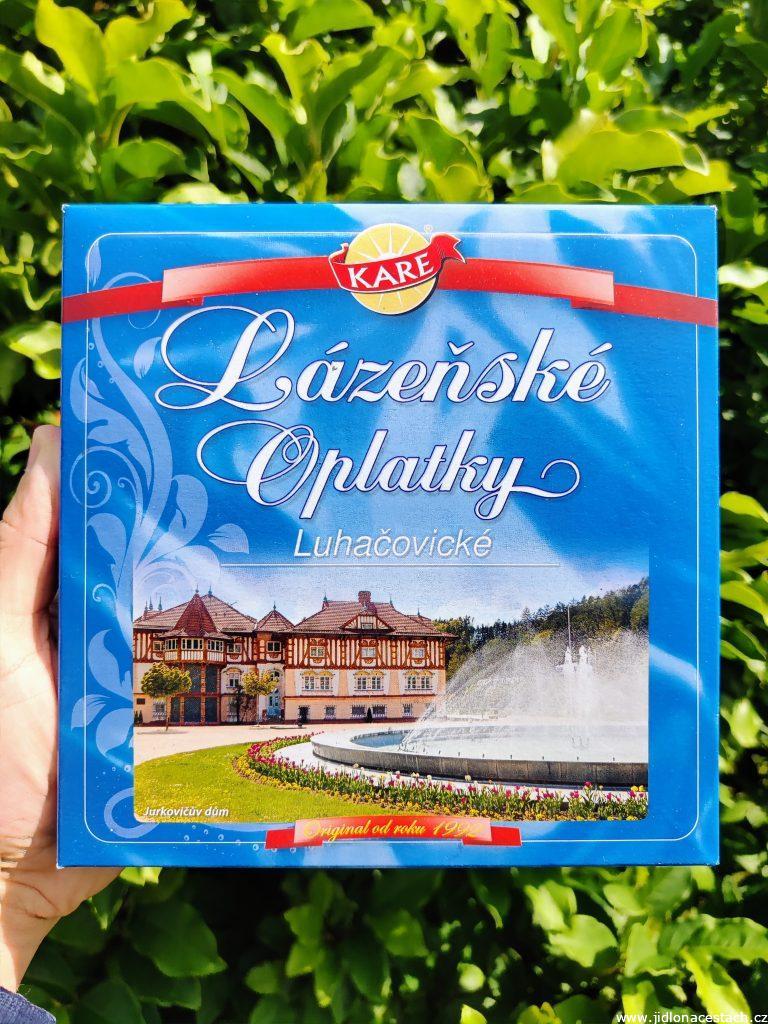
Price for a package of spa wafers: 100 CZK (4 EUR)
Olomoucké tvarůžky
Olomoucké tvarůžky is a traditional Czech cheese originating from the Haná region, specifically the town of Loštice near Olomouc. The history of this cheese dates back at least to the 16th century. Olomoucké tvarůžky are unique for their intense aroma, yellow color, and distinctive soft texture. They are made exclusively from skimmed curd, with no fat or artificial coloring added. The resulting product stands out for its original taste and aroma, which are characteristic for this cheese.
The cheese matures for several weeks in controlled conditions, during which it develops its typical flavor and scent. Olomoucké tvarůžky are often served with bread and onions. They are also a favorite ingredient in cheese spreads or various specialties in restaurants.
Since 2010, Olomoucké tvarůžky have held a Protected Geographical Indication (PGI) of the European Union, which guarantees their origin and traditional production methods. This status protects the product from imitation throughout the EU.
I often bring Olomoucké tvarůžky to France, a country renowned for its cheese-making tradition. Even there, Olomoucké tvarůžky enjoy great success thanks to their very bold flavor.
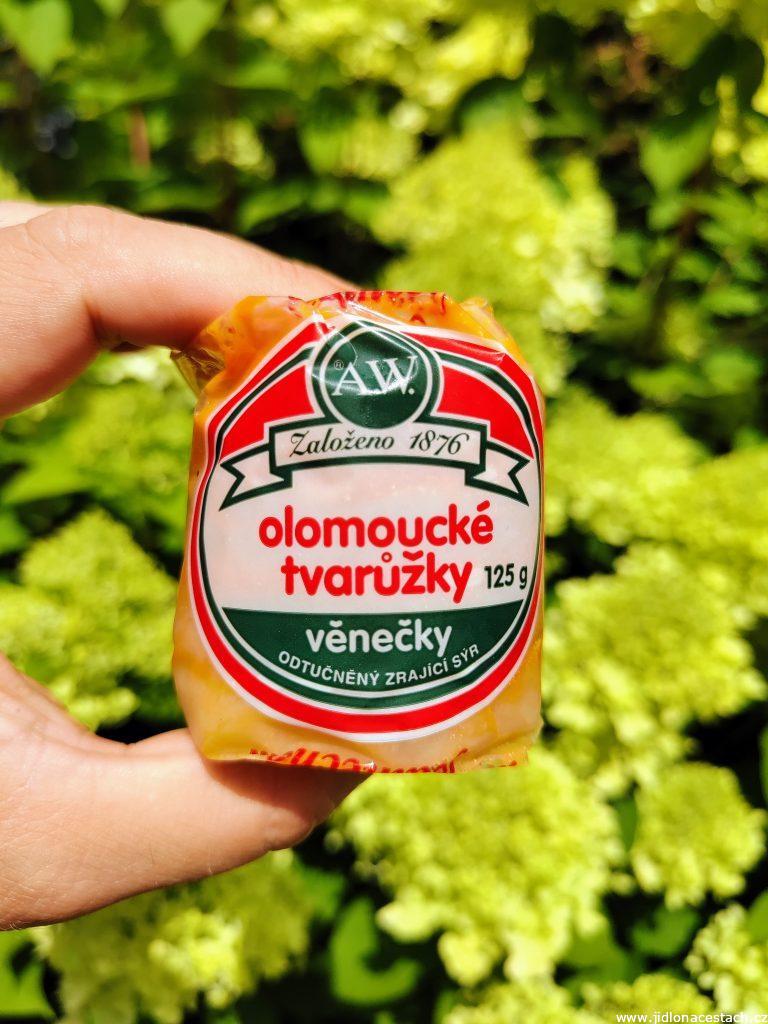
Price for a pack of Olomoucké tvarůžky (125 g): 50 CZK (2 EUR)
Pardubice Gingerbread
Pardubice gingerbread is a traditional confectionery product originating from the East Bohemian city of Pardubice. The history of gingerbread production in Pardubice dates back to the 16th century, making the city synonymous with top-quality gingerbread in the Czech Republic. Pardubice gingerbread is renowned for its rich taste, spicy aroma, and beautiful decoration. In the past, it was considered a luxury item.
The spices used in gingerbread typically include cinnamon, cloves, anise, allspice, ginger, and cardamom. The soft variety of gingerbread is often filled with plum jam or marmalade, while the hard variety is decorated with sugar icing. In many Czech households, gingerbread is baked at home, especially during Christmas. At traditional Czech funfairs, gingerbread hearts decorated with colorful icing and often inscribed with messages are a common sight.
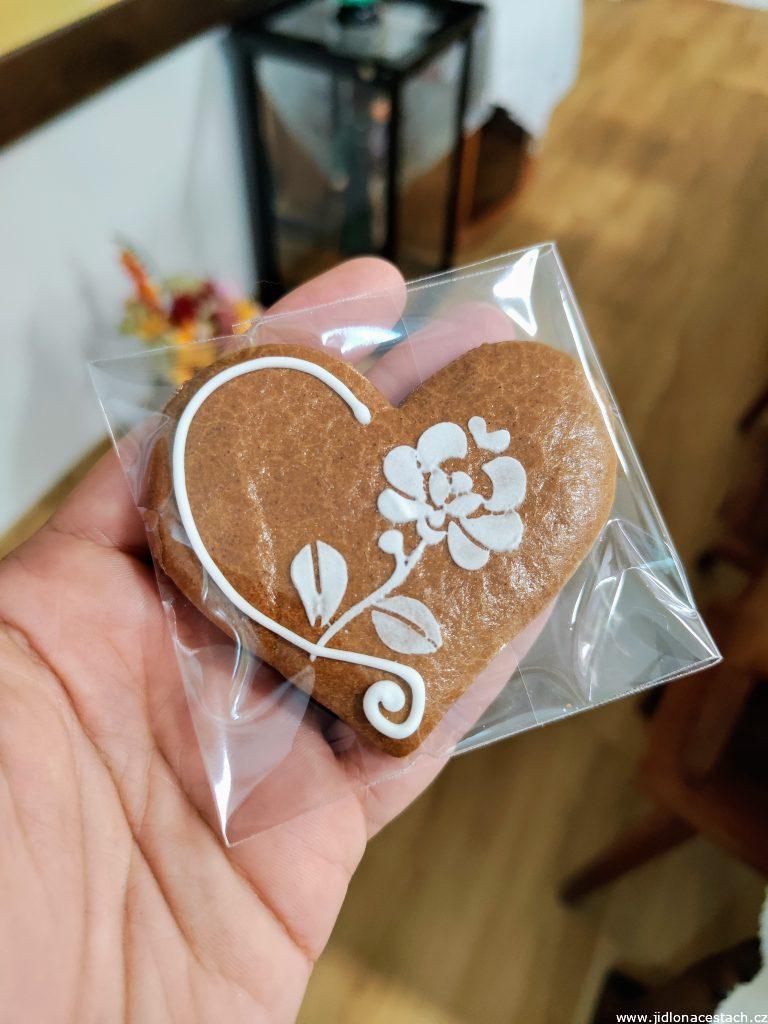
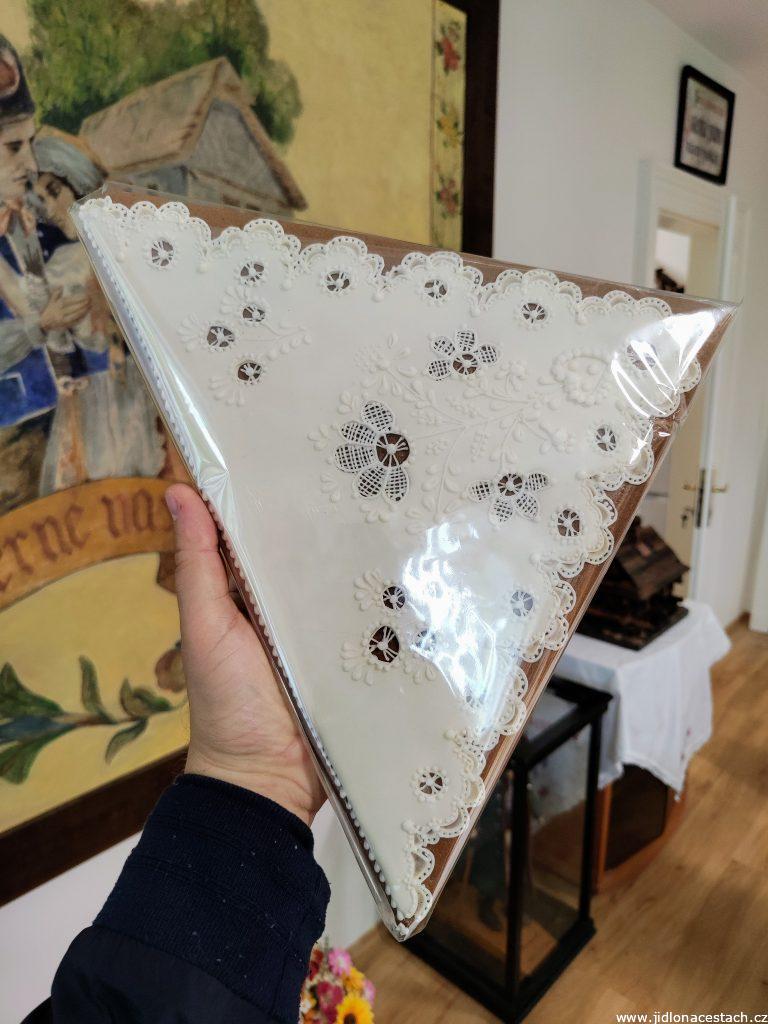
Price for Pardubice gingerbread: varies by size and manufacturer
Hořice Rolled Wafers
Hořice rolled wafers are a traditional confectionery product from the town of Hořice in the Hradec Králové region. Their history dates back to the first half of the 19th century, when they began to be made according to a unique recipe that remains a source of local pride. Hořice rolled wafers are famous for their delicacy, subtle flavor, and distinctive shape.
The batter is baked into thin sheets, which are hand-rolled into tubes immediately after baking. Once cooled, they are filled with delicate creams. The production of Hořice rolled wafers is protected by a Protected Geographical Indication (PGI) of the European Union.
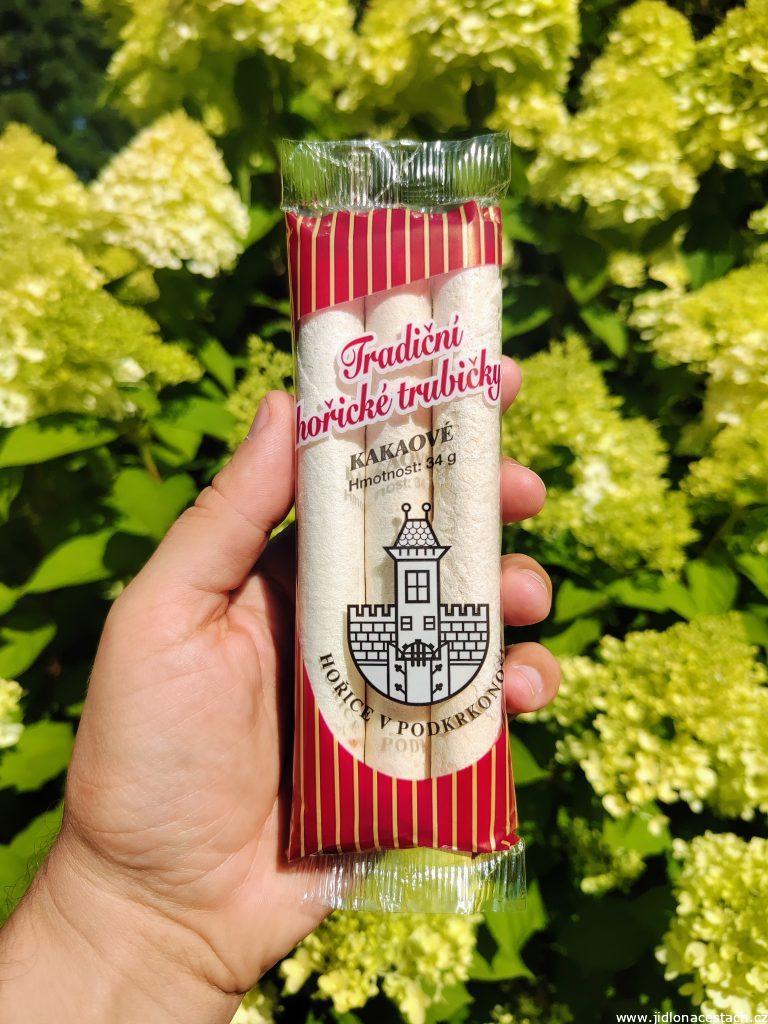
Price for a pack of Hořice rolled wafers (35 g): 15 CZK (0.60 EUR)
Kofola
Kofola is a traditional Czechoslovak non-alcoholic beverage that originated in the former Czechoslovakia. Production first began in 1960 in Opava at the company Galena, which developed the original KOFO syrup as an alternative to Western cola soft drinks.
The main reason for Kofola’s creation was the effort to replace unavailable American brands like Coca-Cola and Pepsi in the socialist bloc at the time. The drink quickly spread throughout Czechoslovakia and built a strong base of fans.
Kofola remains very popular in the Czech Republic today. It is available in various packages, from two-liter plastic bottles to small cans. In recent years, the range has expanded to include different flavors, and sugar-free Kofola is also available. In restaurants, you can even find Kofola on tap.
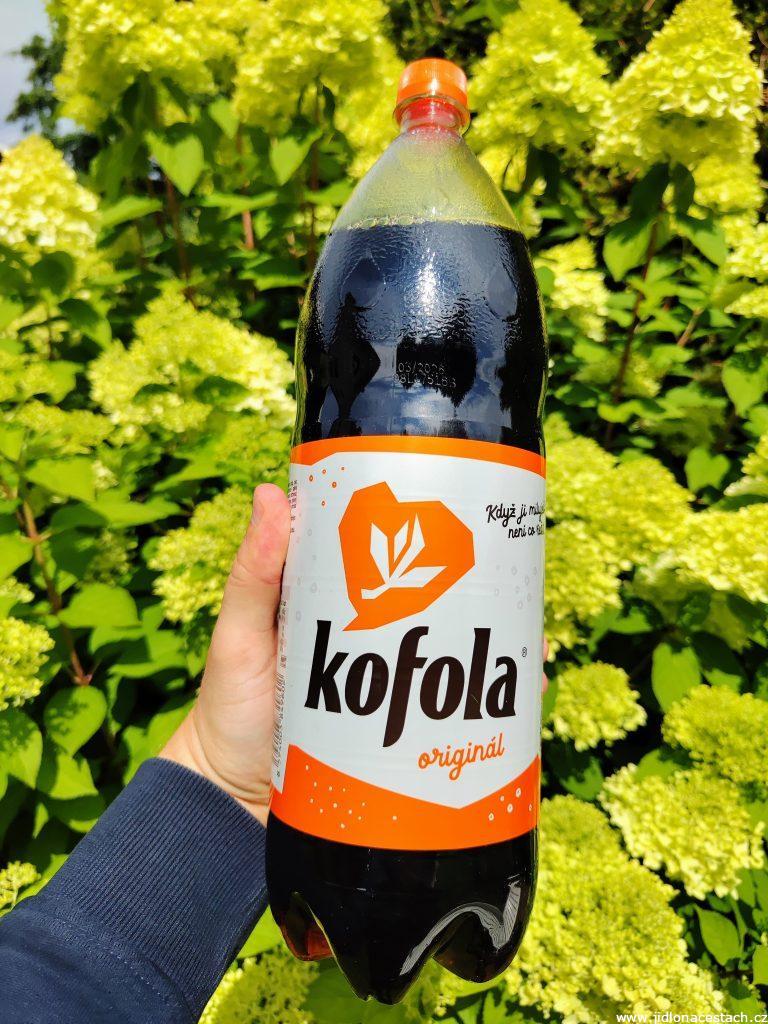
Price for Kofola (2 l, plastic): 27 CZK (1.10 EUR)
Price for Kofola (330 ml, can): 16 CZK (0.60 EUR)
Czech Herbal Teas
Czech herbal teas have a long and rich tradition in the country, stretching back to the Middle Ages. Herbalism was an important part of rural life, with knowledge of medicinal plants and their uses passed down through generations of women and men in both villages and towns. Monastery gardens and home herb patches were a common part of the Czech landscape, and gathering and drying herbs was an integral part of most families’ lives.
Typical herbs used for making teas in Czechia include chamomile, peppermint, lemon balm, St. John’s wort, nettle, and sage. These are often used either alone or in various blends. Herbal teas are a regular part of daily life in Czechia, and some rural families still grow and dry their own herbs at home (for example, my mother).
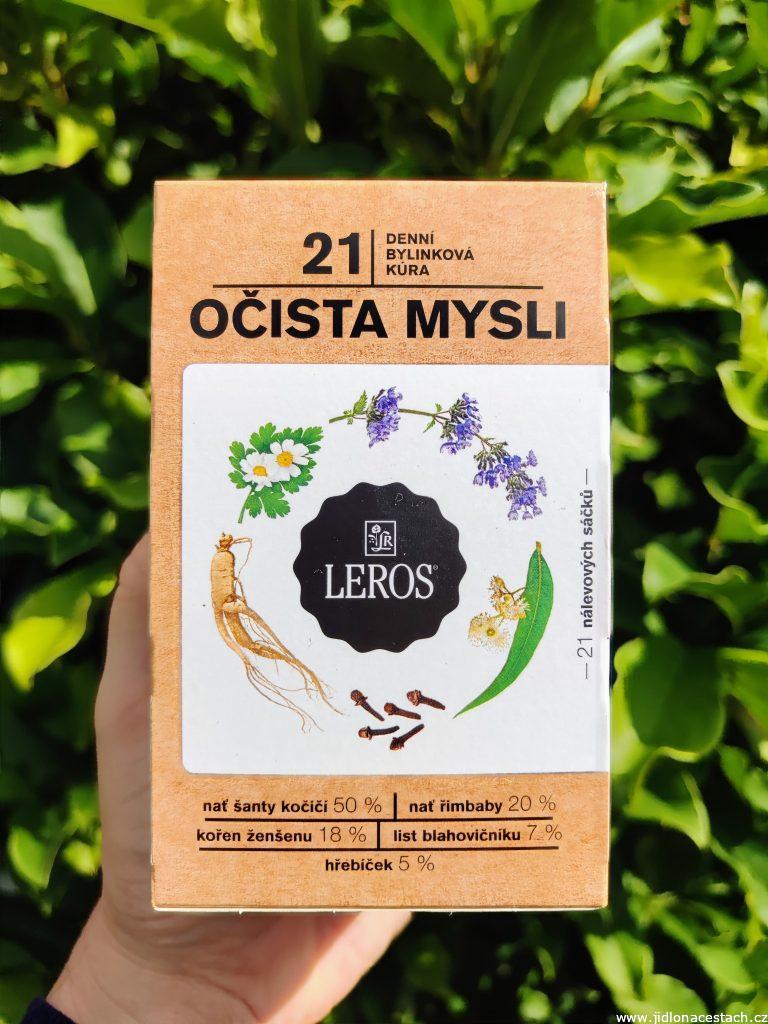
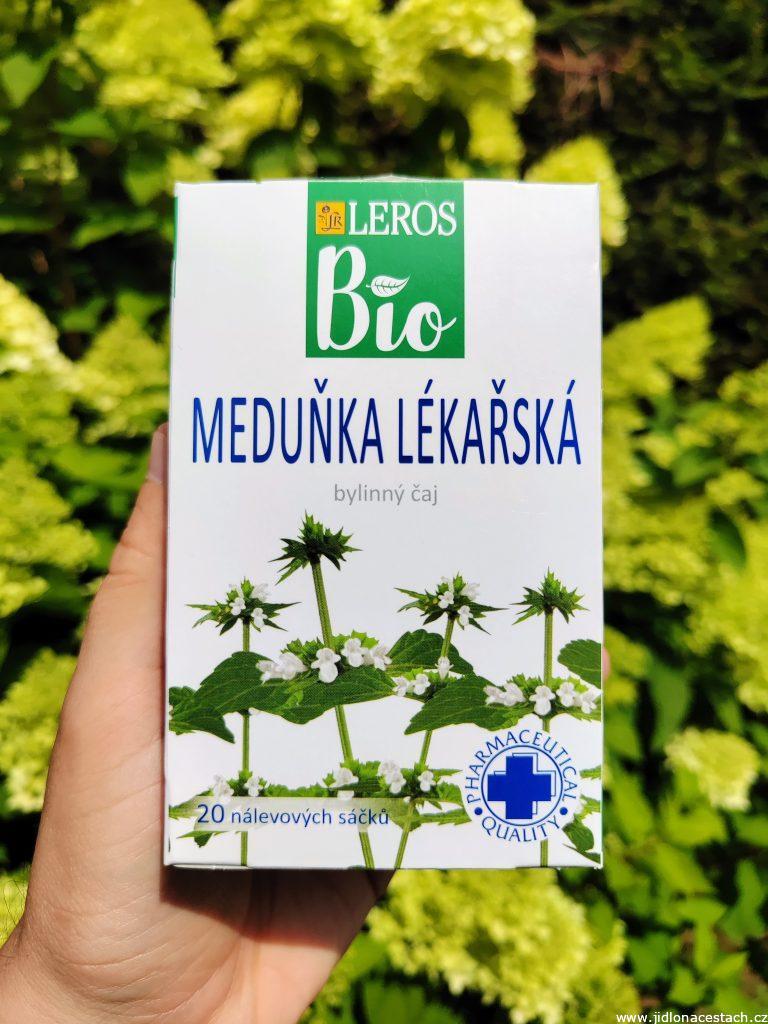
Price for a box of Leros lemon balm tea (20 bags): 25 CZK (1 EUR)
Štramberk Ears
Štramberk ears are a traditional Czech crispy, aromatic pastry with a distinctive honey and spice flavor, originating from the town of Štramberk at the foothills of the Moravian-Silesian Beskids. The history of this unique pastry dates back to the 13th century.
Legend says the shape of Štramberk ears resembles a human ear. According to the story, after a victorious battle against the Tatars, the people of Štramberk found sacks filled with human ears, which the Tatars had cut off their victims as proof of their deeds. The sweet treat was then made to commemorate this victory.
The production of Štramberk ears is protected by a Protected Geographical Indication (PGI) of the European Union. Authentic Štramberk ears can only be produced in Štramberk and its immediate surroundings, following a precisely defined recipe and process.
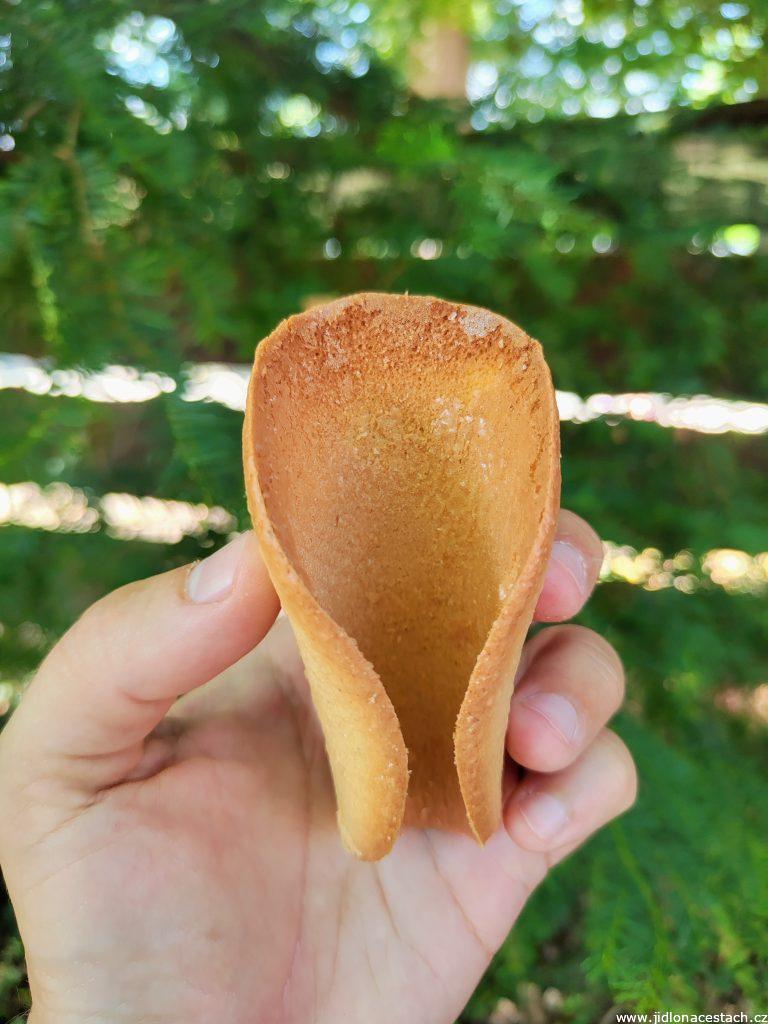
Price for a pack of Štramberk ears: 50–100 CZK (2–4 EUR) depending on the manufacturer
Znojmo Pickles
Znojmo pickles are among the most famous and traditional pickled cucumbers in the Czech Republic. Their origins are closely tied to the town of Znojmo and its surroundings in South Moravia, where cucumber cultivation and processing flourished as early as the 19th century. The Znojmo region, thanks to its favorable climate and fertile soil, has long been regarded as the heart of Czech cucumber growing, and it was from here that the name “Znojmo pickles” spread throughout the country and abroad.
Pickling cucumbers is still a vibrant and beloved tradition in Czechia. Many families make their own pickles every year according to family recipes for brine, including ours. Pickled cucumbers are a cherished side dish in Czech cuisine, especially served with meat dishes.
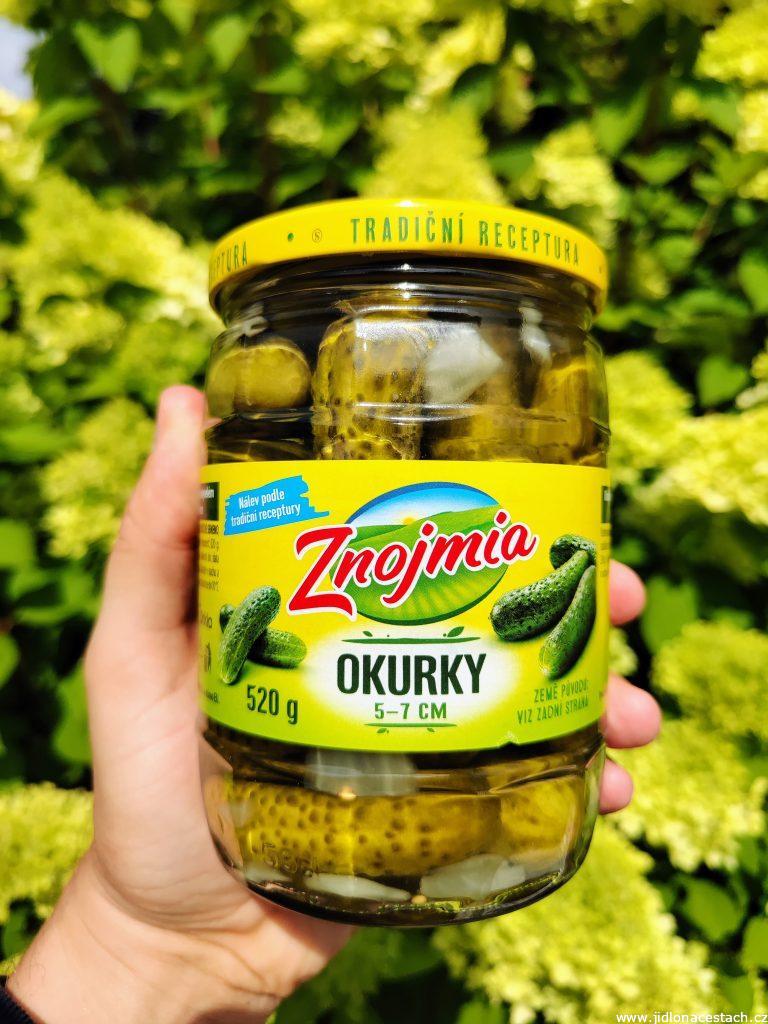
Price for a jar of Znojmia pickles 7–9 cm (680 g): 50 CZK (2 EUR)
Plum Butter
Plum butter is one of the most traditional Czech fruit preserves. Its production is especially widespread in regions where plums are commonly grown, such as Moravia or Eastern Bohemia. For generations, plum butter has been a staple of winter pantries in Czech households and remains a beloved ingredient in pastries and cakes. Family recipes for plum butter are often passed down from generation to generation.
Only ripe, pitted plums are used to make plum butter. The fruit is slowly cooked for many hours, allowing the water to evaporate and forming a thick, dark, glossy consistency. Sugar is usually not added, or only in minimal amounts depending on the sweetness of the fruit. Plum butter is very thick, holds its shape and doesn’t run, unlike jam or jelly, which are more liquid and contain more sugar and gelling agents.
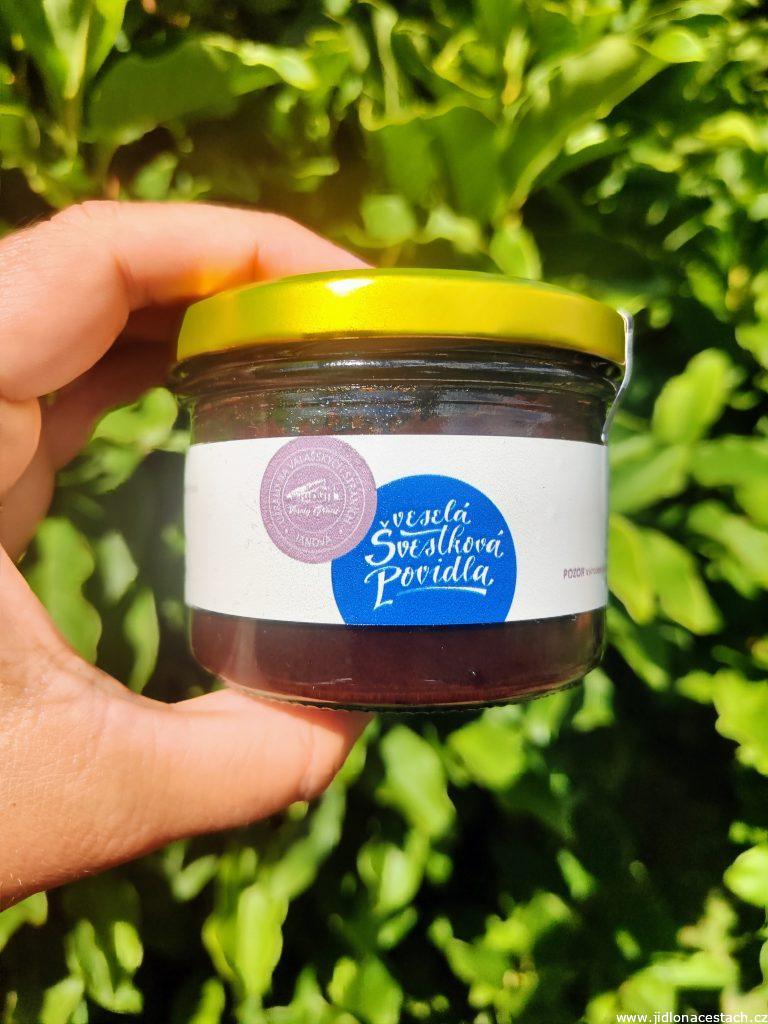
Price for a jar of Veselý grunt plum butter (190 g): 85 CZK (3.40 EUR)
Fruit Jams
The history of jam making in Czechia is closely connected to the widespread cultivation of fruit trees in the countryside and the effort to preserve the harvest for winter. Jams in Czechia are made primarily from local fruit, and their production is still a common part of home preserving for many families. Traditional homemade jams are prepared mostly in summer and autumn, when fruit is at its peak in both quantity and quality.
The most popular Czech jams are made from strawberries, apricots, cherries, raspberries, plums, and blueberries. In some regions, specific types of fruit are used depending on local conditions—for example, apricots and peaches are widespread in South Moravia, while blueberries, blackberries, and currants are common in mountain areas. In Polabí and Central Moravia, apple and pear jams are often cooked. Regional differences in fruit selection are shaped by tradition and the composition of local orchards and gardens.
The tradition of homemade jam making is still very much alive in Czechia. Many families keep and pass down their own jam recipes through generations. My family still makes homemade jams from strawberries, apples, and raspberries.
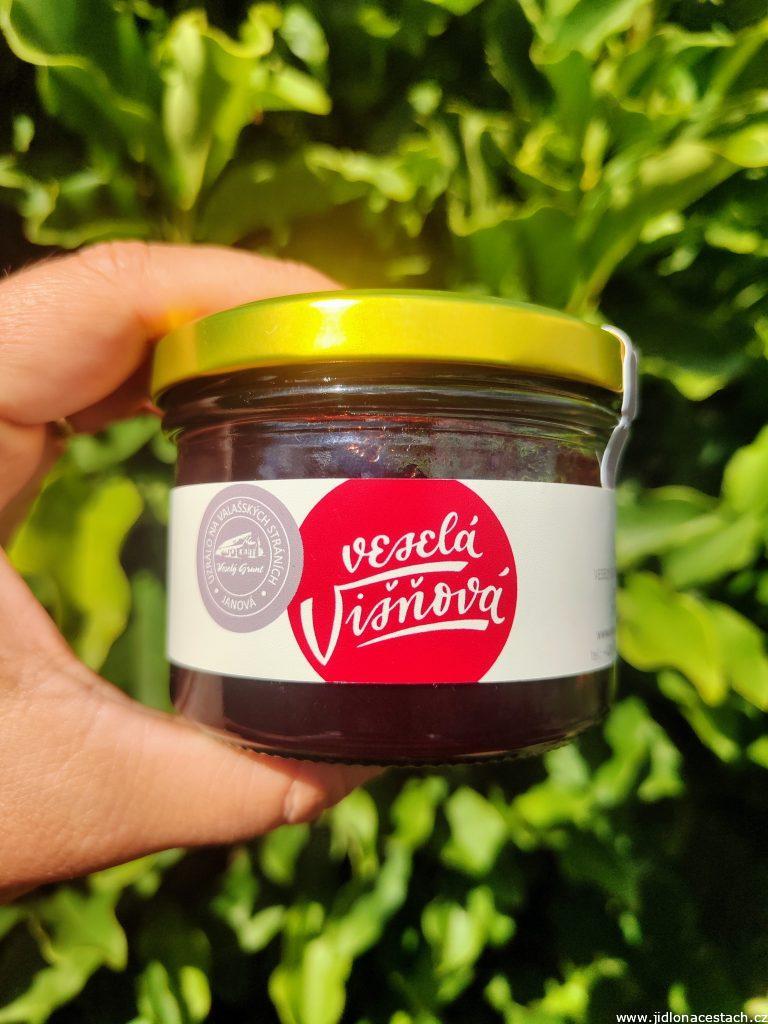
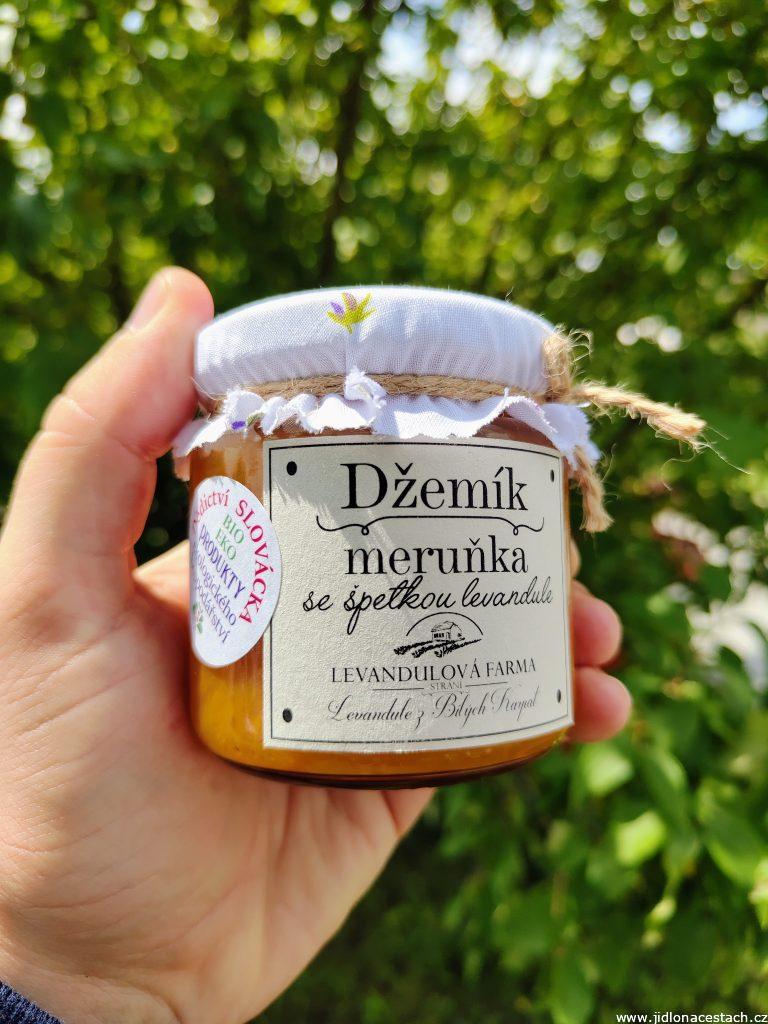
Price for a jar of Veselý grunt sour cherry jam (190 g): 85 CZK (3.40 EUR)
Fruit Compotes
Fruit compotes are one of the traditional ways of preserving fruit in Czech cuisine. In the Czech Republic, making compote is still a common household practice. Many families prepare their own compotes each year based on tried and tested family recipes, using fruit from their own gardens or bought from local growers. Typical Czech compotes are made from strawberries, apricots, cherries, apples, peaches, plums, and pears. Combinations of different fruits in a single jar are also popular.
My personal recommendation is to bring back Czech stewed plums, which pair perfectly with Czech poppy seeds in pastries.
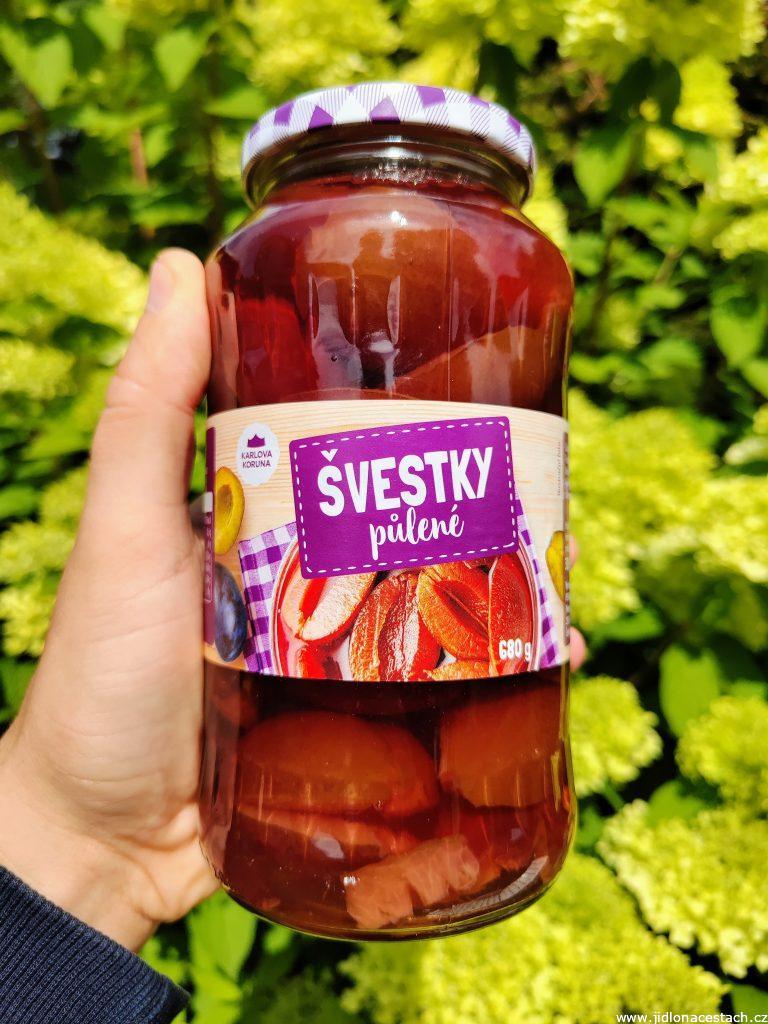
Price for a jar of plum compote (680 g): 50 CZK (2 EUR)
Czech Poppy Seeds
Poppy seeds are a traditional crop grown in the Czech Republic. Czechia is one of the world’s largest producers of culinary poppy seeds. Poppy seeds are cultivated especially in the Polabí region, Haná, and some areas of Central and Northern Bohemia. The favorable climate and soil in these regions produce poppy seeds with a high oil content and a delicate flavor.
Poppy seeds are intertwined with many customs and traditions in Czech culture. In the past, they were a symbol of abundance, fertility, and protection from evil. Poppy seeds were added to wedding pastries, Christmas bread, and other festive dishes. In many families, there’s a tradition that poppy seeds on the table bring luck and prosperity.
What’s truly unique is the easy use of poppy seeds in Czech desserts and sweet dishes. In most other countries, culinary poppy seeds are used sparingly, often due to laws and concerns about alkaloid content. Czech poppy seeds, however, are carefully monitored and entirely safe for consumption.
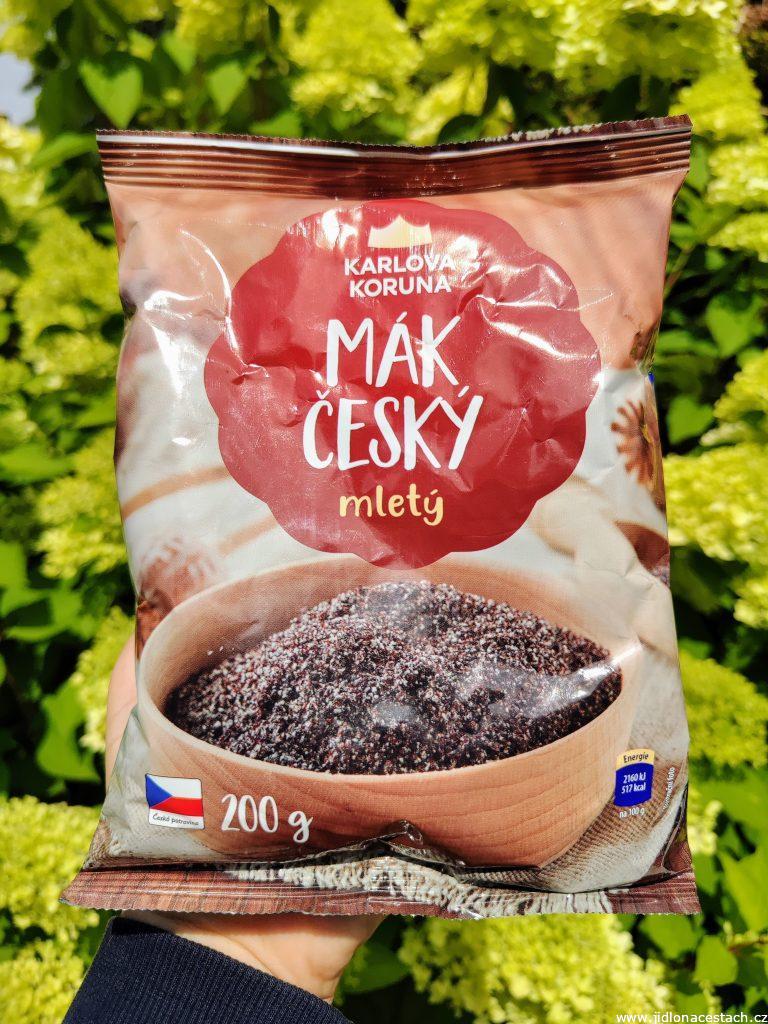
Price for a pack of Czech poppy seeds (200 g): 40 CZK (1.60 EUR)
Vincentka Mineral Water
Vincentka mineral water comes from the spa town of Luhačovice in the Zlín region, where it springs from deep underground sources. The first mention of the Vincentka spring dates back to the 17th century, with systematic use of the water starting in the 18th century. Vincentka is closely tied to the spa tradition in Luhačovice and is among the most famous and longest-used mineral waters in Czechia.
Vincentka’s uniqueness lies in its composition. It is a natural, highly mineralized water with high sodium, chloride, hydrogen carbonate, and other mineral content. Thanks to its composition, Vincentka has a distinctive salty taste and is used not only for drinking, but also for inhalation, gargling, and other spa treatments. The water is bottled directly at the spring, without any modifications.
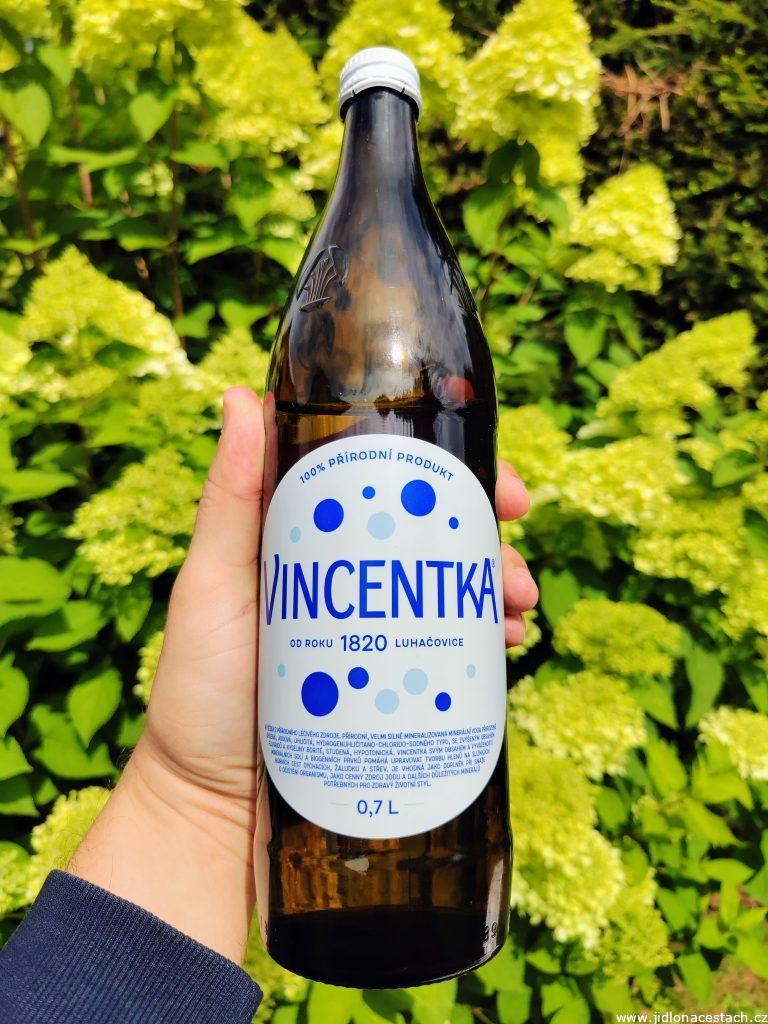
Price for a bottle of Vincentka mineral water (0.7 l): 55 CZK (2.20 EUR)
Coffee from Czech Roasteries
Although coffee isn’t grown in the Czech Republic, many local roasteries source and roast specialty coffee from around the world. These roasteries take great care with bean selection, precise roasting, and freshness of the final product. Well-known Czech roasteries include Doubleshot, Dos Mundos, Father’s Coffee, Rebelbean, and Nordbeans. My personal favorite is Aromaniac. These companies offer both single-origin coffees and unique blends, and often work directly with growers abroad.
In many cities, you’ll find cafés directly connected to these roasteries.
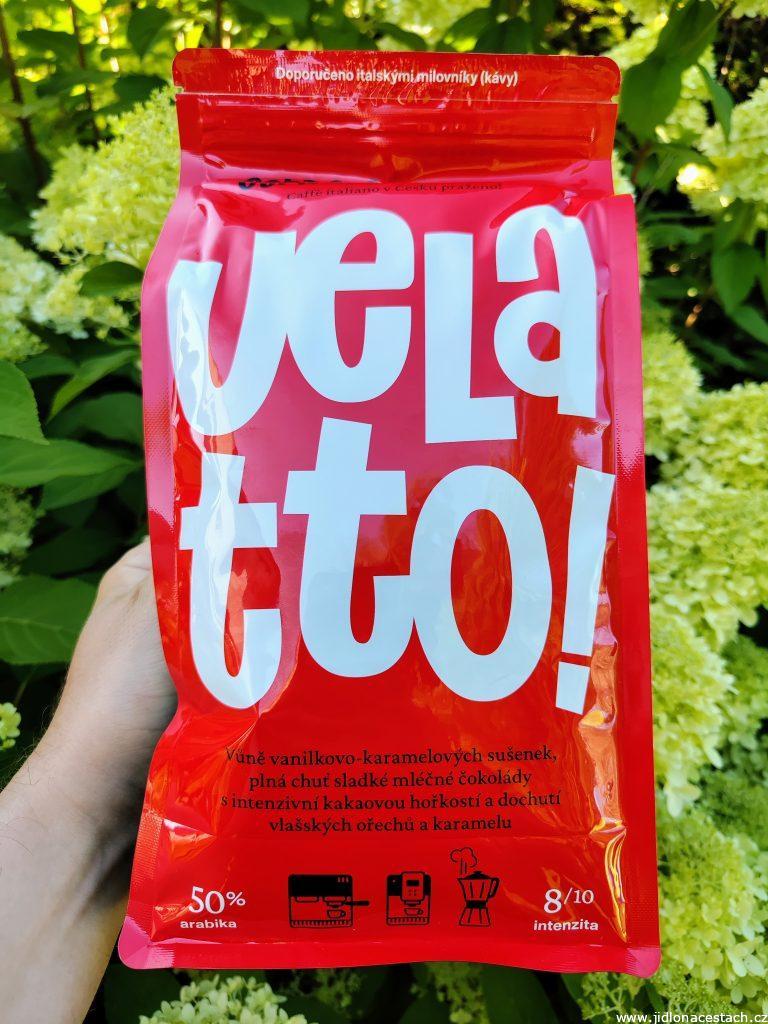
Price for a pack of Aromaniac Brazil Santos, roasted in Czechia (250 g, whole beans): 190 CZK (7.60 EUR)
Price for a pack of Aromaniac Velatto Espresso Intenso, roasted in Czechia (1 kg, whole beans): 390 CZK (15.60 EUR)
What Czech delicacies do you bring back from my beautiful country?
🇨🇿 You have mastered Czech cuisine. How about trying something new? Sign up for my newsletter and I will introduce you for free to great dishes from Spain, Portugal, or France.


